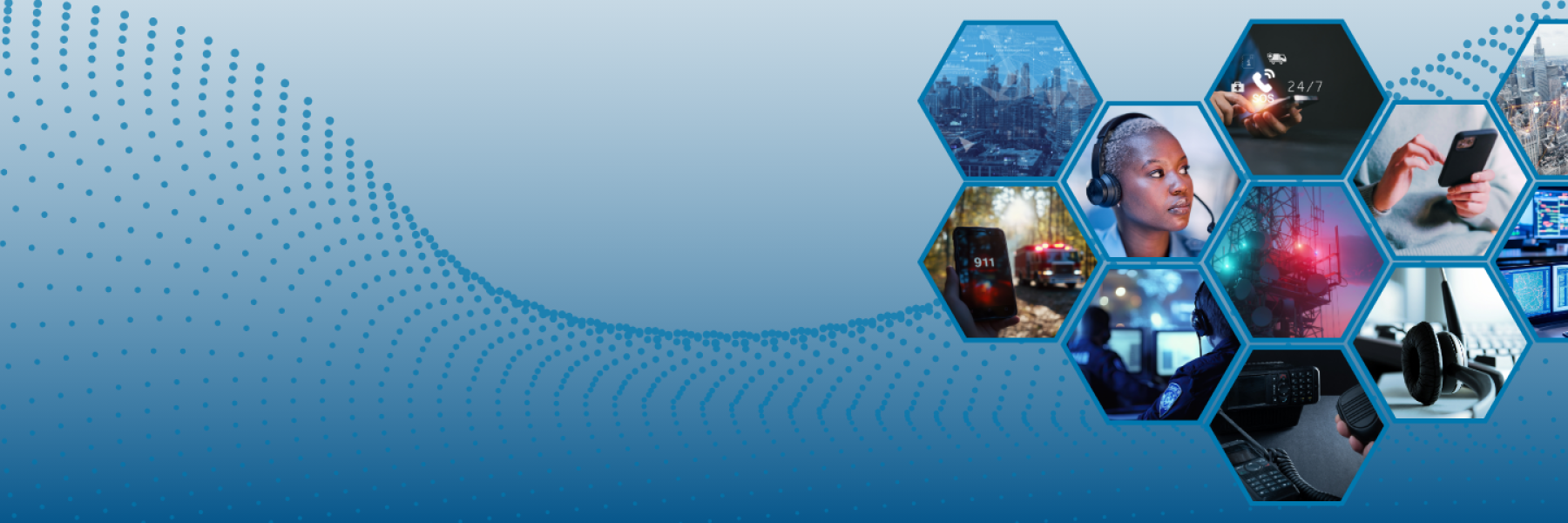
National Public Safety Telecommunicators Week
April 13 - 19, 2025

SAFECOM/NCSWIC 911 Cybersecurity Resource Hub
CISA is committed to ensure the resiliency and security of our Nation’s emergency communications ecosystem. Visit the SAFECOM/NCSWIC 911 Cybersecurity Hub to find resources for specifically for 911 Centers.
History of National Public Safety Telecommunicators Week (NPSTW)
NPSTW is held annually during the second week of April to honor public safety telecommunicators for their commitment, service, and sacrifice.
NPSTW initially started in 1981 by Patricia Anderson of the Contra Costa County Sheriff’s Office in California. In 1994, President William J. Clinton signed Presidential Proclamation 6667, declaring the second week of April as NPSTW. This week is a time to celebrate and thank telecommunications personnel across the nation who serve our communities, citizens, and public safety personnel 24 hours a day, seven days a week. Learn more about the history of NPSTW and how you can celebrate our public safety telecommunicators.
Celebrating Telecommunicators
CISA is honored to celebrate NPSTW to give recognition to our nation’s public safety telecommunicators. We thank you for your commitment and dedication to public safety and ensuring no call for help goes unanswered. Scroll below to find resources for your 911 Center and ways you can recognize public safety telecommunicators this year during NPSTW:

NPSTW.org
To recognize public safety telecommunicators, the Lake County Office of Public Safety Support hosted BBQs and daily themed dress days, including Sci-Fi Sunday. The Lake County 911 Board also issued a proclamation recognizing NPSTW.

Tree of Life
Public safety telecommunicators answer the call for service 24/7/365. Recognize the heroes under headset at 911 Telecommunicator Tree of Life.

SAFECOM/NCSWIC NG911 Working Group
The SAFECOM/NCSWIC NG911 Working Group is developing tools and resources to help 911 centers transition to NG911. Interesting in being a part of the NG911 Working Group? Contact the NG911wg@mail.cisa.dhs.gov.

ECPC Federal 911 Working Group
The ECPC Federal 911 Working Group collaborates with federal 911 emergency communications practitioners to share best practices and develop resources to help agencies enhance emergency communications.
CISA supports the 911 community
All 911 centers, including Emergency Communications Centers (ECCs), Public Safety Answering Points (PSAPs), Public Safety Communications Centers (PSCCs), Emergency Operations Centers (EOCs), and other public safety command centers, are a critical component of emergency communications and provide critical, life-saving emergency services to the public.
CISA works collaboratively with federal, state, local, tribal, and territorial (FSLTT) governments, the private sector, and volunteer response organizations to support emergency communications operability, interoperability, security, and resiliency across our nation.

Strategic Planning
CISA developed the NECP to strengthen emergency communications capabilities, transition to NG911 capabilities, and incorporate human factors in training and exercises.

Research and Development
CISA conducts innovative studies and pilots and develops tools for 911 and NG911. These activities include Computer-Aided Dispatch (CAD)-to-CAD initiatives, multimedia consumption research, and tool development to ease the burden on telecommunicators

Technical Assistance
CISA provides direct technical assistance and training to support 911. The service offerings, including NG911 strategic planning support and 911 cyber assessments, can be found in the Technical Assistance Catalog.

911 Cybersecurity Resource Hub
A one-stop shop that compiles cybersecurity resources specifically for 911 Centers. Checkout the Hub to report a cyber incident, find real-world case studies, access cybersecurity education and training opportunities, and learn about best practice

AI in ECCs
This infographic highlights how ECCs are utilizing emerging technology to triage incoming calls, translate and transcribe calls, confirm critical data and identify inaudible background noises, and improve quality assurance processes.
Want to learn more about our 911 initiatives?
Visit the SAFECOM Transition to NG911 web page or email ng11wg@mail.cisa.dhs.gov for additional resources and information about how CISA is supporting telecommunication personnel across the nation.





